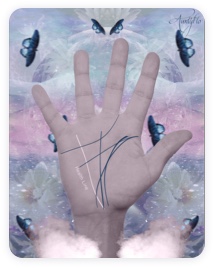A Lucid Dreamer

What is Lucid Dreaming?
So you are hear about lucid dreaming! Are you a lucid dreamer? Do you dream naturally and feel that it is real? The main reason for this article is to understand why you dream in a lucid state. Everyone has over 100,000 dreams in their lifetime. Sometimes we dream more than once a night. We need to understand why lucid dreaming happens and understand different dreaming methodologies.
What does it mean by being a lucid dreamer?
What is a lucid dream? A lucid dream occurs when a person becomes aware of the dream. We can all get lost in our dreams and manipulate the dream in this state to some extent, taking control of our own experiences. This allows us to explore different settings and characters, as well as be aware of their own thoughts, feelings, and body movements. Vivid imagery and heightened awareness are often associated with lucid dreams. Dreams may even allow us to move objects or possess magical powers. The ability to explore the depths of the subconscious mind during lucid dreaming can also allow us to confront our fears. Let me share with you that through lucid dreaming you can gain insight into yourself and the world around us!
If you are willing to explore lucid dreaming then you will be on the path to an exciting adventure! --- however, it is important to note that lucid dreaming may not be suitable or healthy for everyone. In addition, those prone to sleepwalking or sleep paralysis should avoid lucid dreams as they can trigger attacks. It is important to remember that lucid dreams are still just dreams and have no real-life consequences. To stay grounded in reality, lucid dreaming should be approached with precaution --- remember to not to get too engrossed in their dream world.
The practice of lucid dreaming is a powerful tool for self-discovery, understanding, and exploration - but it should be conducted with caution at all times. The art of lucid dreaming can be learned and practiced by anyone with time and practice. So my view of lucid dreaming is that you can create an exciting adventure in your dream world or explore your inner thoughts by lucid dreaming.
If you have dreams whereby your conscious is aware that you are dreaming, then you can be defined as a lucid dreamer. It means that you are experiencing lucid dreams where you are in a position to exert some control over the characters in your dream, the environment, and the narrative.
What it is Like To Be a Lucid Dreamer?
Have you ever wondered what it would be like to influence your dreams by controlling your mind? To experience these things means you may fear real life or through lucid dreaming, you are able to do amazing things like flying or kissing your favorite heroine; or even gaining a solution to a problem that is disturbing you. Yes, it seems that in life you may be better off learning and becoming a lucid dreamer and this will allow you to experience all sorts of amazing things, but in particular, it will allow you to remember your dreams in your waking life.
When you become a lucid dreamer, you will experience something strange which will cause you to question your reality; then all of a sudden, you will realize that you are dreaming. The more you become aware that you are dreaming, the more you can consciously influence the content of the dream. To become a lucid dreamer, it takes some practice, and in case there is a fast route, then it has got to do with raising your acetylcholine levels. This is responsible for your lucid dreams. It regulates REM sleep and makes it possible for you to be aware of what you are dreaming.
How can you create a lucid dream?
Now that we know what this lucid dream is how can you use lucid dreaming to help your life? Ok, lucid dreaming gives you a total view of life, allowing you to completely control the dream. So how do you accomplish lucid dreaming? Firstly, you need to be aware you are actually dreaming. Before you sleep say “I will visit a castle in my dream” over and over so that in your subconscious mind you know deep down that when you get to that castle in the sky you are in your dream. The dream will be lucid in nature because you have “wished” for that dream. Don’t worry if this does not happen instantly, you will get there. The great thing about lucid dreaming is that you can explore anything in life. You can reach real control in a dream just by will alone. The way I go into my lucid dream is to visit my special dream doors. Each door is presented in my mind before sleep. I then see a landscape such as flowers or hills. This will allow you to move through different parts of life and willingness to move into your own dreamland.
Why learn to become a lucid dreamer?
There are several benefits you can derive from being a lucid dreamer which includes, but are not limited to: Lucid dreaming will help you to find solutions to real-life problems. While having a lucid dream, you will be able to test various solutions for problems you might be encountering in life. For example, you can test how you feel after having a conversation that could be difficult with a person. Maybe this is a person you have encountered conflict with in your waking life. Maybe it is an event where you have to present and you consider it important to carry out speech practice while facing an audience. During lucid dreaming, you can be able to practice how you present yourself in preparation for a real-life encounter when you wake up. Yes, lucid dreaming will also make you fall asleep faster. If you are suffering from insomnia then being a lucid dreamer can help you overcome sleepless problems. It will help you control the frequency of nightmares and thus, make you have a peaceful sleep while dreaming what you have tuned your mind to dream.
Will lucid dreaming help you live out your fantasies?
Yes, it will, if you practice lucid dreaming, your dreams will become vivid as you will be able to control and relive them easily. You will be able to live up to your fantasies like kissing a famous actress, flying like a superhero man, and talking to a deceased loved one. The limit to lucid dreaming lies with your imagination; the more you imagine, the more you will be able to dream. You will be able to do or go wherever you want in your dream without any limitations.
Another benefit of lucid dreaming is that you will feel revived throughout the day. After having your lucid dream, you will feel relaxed because you will have solved a problem that could have been disturbing you for a long time. It will make you the courage to face the things which you once feared to try out, because, you got a solution during your dream.
How does a lucid dream work?
Dreams are a combination of visual, verbal, and emotional stimuli which are then developed into a storyline which then is nonsensical and broken, yet fascinating. Once you sleep, your brain goes into a limbo where it passes through five steps of sleep comprising of between 90 to 110 minutes that make up a sleep cycle and during the last stage, the REM stage, that is when you have the dreams both the normal and lucid dreams occurring.
Dream psychologists and dreams explained:
Dream interpretation is normally conducted by dream psychologists who assign meaning to dreams. In ancient Greece and Egyptian societies, a dream was considered a supernatural communication or a divine one, whose interpretation was completed by people associated with spiritual powers. Dreams can be mysterious and baffling. In science, it is believed that dreams are what led to the discovery of the molecular structure of carbon atoms in the ring of benzene. With all this mystery surrounding dreams, it can leave you wondering what your dream is all about, and with that, what causes them.
In spite of modern science, it is still a mystery why we dream, and even though it can explain how dreams are related to brain functioning, without psychologists and the psychological understanding of how the unconscious mind functions, it is impossible to explain how and why dreams happen when they happen. Sigmund Freud and Carl Jung are pioneers and famous dream psychologists who once explained that dreams are a “royal road that leads to the unconscious” and it is a statement that will always be famous - as far as psychology is concerned. Jung is a dream psychologist who believed that every dream is a wish fulfillment.
Apart from Sigmund Freud, other dream psychologists believe that dreams have a fixed meaning. For example, there are those who believe that, if you dream about onions, it means hard work and if you dream about oranges, it means better health. There also exist a whole array of dream dictionaries on the market which you can purchase and get a feel of what others think about particular dreams, but are they true? There is not only the psychological aspect of dreams but also the spiritual context of dreams.
Apart from the above, there is a group of dream psychologists who believe that dream originates from one’s unconscious. They believe that dreams are valuable hints on how you are supposed to improve your life and keep off self-destruction. Carl Jung and Freud are famous in the field of interpretation with thousands of books written by them on dream analysis, from doctoral theses to pop culture dream dictionaries. It is important to note that, there is a desire to understand dreams. There are those people who go the extra mile by turning to vision to have real insight into their dreams. Anytime a dream happens it stirs up emotion; we are all eager to understand what the dreams are all about.
What are dreams from the dream psychologist's point of view?
The famous dream psychologist Pagano was once quoted as saying, “symbols and archetypes are used as a language of choice” to communicate to our inner self what we couldn’t communicate in our day-to-day life. This is because, our social norms, beliefs, fears, and other barriers to self-knowledge do exist. Through interpretations, psychologists believe to see yourself and your desires in the dream state is a way too devoid of all the baggage of life. When you dream, you seem to have a more balanced view of life as compared to when you are awake.
How do you know what your dream means?
It is important to note that, you do not use the dream itself. When you are describing your dream to someone, it is impossible to depict the images which you perceived during your dream. But it is easy to put your dream into words to describe the experience you had in your sleep. So when you talk about your dream, you talk about the dream details that you perceived in your sleep. The form of interpretation, which is the details, is known as the language of the dream. With that in mind, it is easy to conclude that, it doesn’t matter what the images you noticed in your dream came from; whether the source was from an activity in the brain or a greasy pizza that you ate before retiring to bed. Any attempt you try to use to get sense out of the images might reveal something important about your psychological process.
Dream interpretation is a practice that is very much individualized. There are dreams which may share the same symbol but have different meanings depending on circumstances in your life. According to dream psychologists, a house with peeling paint might indicate that you have a desire for outer improvement, but the actual improvement is dependent on you. It is advisable that you keep a dream journal with you so that you can, in the future, be able to deduce the trend of your subconsciousness and the message it is trying to bring out.
How do you analyze your dream according to dream psychologists?
According to Pagano, a famous dream psychologist, when you have a dream, it is important that you review the dream by carefully taking a look at everything that is happening in the dream, who is present, and the location where the scene of the dream happens. From there, it is time to examine the way you normally socialize with people and what the feelings of the dream trigger inside you.
When you dream, and you see people you know in your dream, try to picture how they are behaving and how they feature. Do you like their characteristics or do you feel that they are arrogant, proud, or bossy? Whatever it is that you figure out, this is a shadow characteristic of you. The location where the dream is taking place is also very important. If you dream that you are in a school setting or at home, try to check what the dream means, especially if it is a home; If you are at home, check out if it is at your home or a friend’s or a strange home. In most cases, the dream is a reflection of what is going on in your daily life.
What does it mean when dreams re-occur?
Dreams which keep on recurring should be taken seriously because your subconscious is trying to communicate a message to you. As Goodin, a dream psychologist puts it; a recurring dream is an indication that there is something in your life that is unresolved. If you write it down and try to analyze the dream, you might be able to get a psychological revelation that is blocking you or a conflict is lingering and needs your attention.
Is lucid dreaming bad?
Are you one of those people who feel that when you are lucid dreaming, it is bad for your health? Are you going insane when you have numerous of these types of dreams frequently? Is it in any way going to cause you to lose touch with reality? You are just among the many who have been pondering on the effects of lucid dreaming. But the good news is that there is nothing sinister in having such dreams.
Is there any evidence of lucid dreaming is bad?
According to several researchers, there is no evidence to pin any mental illness on the act of lucid dreaming. Resilience has been linked to lucid dreaming. It has been noted that lucid dreaming is the ability to maintain stability during and after traumatic events. In clinical fields, lucid dreaming is used to help cope with nightmares, thus, considered by psychologists as one that promotes psychological growth as well as makes it possible for problem-solving to be done.
So with the above, why is it that, some people still believe that lucid dreaming is bad? It could be just because some journalists get their facts wrong. Take for example an article that was carried in Times magazine about a Mr. Jared Loughner being a lucid dreamer; it was an act of a regrettable unbalanced and fear-mongering piece of journalism. The fear could be deeper and could be based on people naturally fearing lucid dreamers as well as some dream psychologists grabbing headlines with metaphors that make people remain disturbed.
Is lucid dreaming a mental illness?
Where did this impression that lucid dreaming causes mental illness to originate from? If you are keen to learn more, you will observe that both those people who are lucid dreamers sometimes suffer from dementia, normally one seems to exhibit signs of seeing the unforeseen by those around them. It is what is normally referred to as hypnagogic hallucinations. These are images that normally appear at the time of waking and sleep. People living with mental illness also encounter lucid hypnagogic, as it comes with arousal disorders. When you see things at the onset of sleep, it is an early symptom of schizophrenia, which normally occurs before one suffers mental disorders. Hypnagogic has all along been seen as a symptom that prepares one for the worst; mental illness and especially if in your family you have a history of the disease.
Now you see why people have always felt that lucid dreaming is a bad sign! It is because lucid dreamers get hypnagogic hallucinations, the same as the onset of people living with mental illness. That could be the reason why most psychiatrists have continued to misdiagnose lucid dreaming as a symptom of schizophrenia, and yet this is a state of action that appears in healthy adults with no history or signs of illness.
Lucid dreaming as delirium
Another reason why most people perceive lucid dreaming to be bad is due to psychiatrists compare paranoid delusional patients to people who exist between sleeping and waking life. This metaphor in recent days was strengthened by researcher Allen Hobson, who believes that dreaming is delirium while another doctor from Harvard, Patrick McNamara believes that, dreaming is an act of aggression due to the negative content in the dream. The concept of the fact lucid dreams can lead to psychosis was also discussed by Patrick McNamara. It is thought that dreaming, a disorder of social aggression, and waking hallucinations are controlled by our brain mechanisms, and that is where the similarity ends. This should not be used to imply that, lucid dreaming in any way could lead to madness or any behavior that is bad and perceived to be anti-social.
What are the implications of lucid dreaming?
When you are lucid dreaming, it leads to a feeling that you are losing touch with reality and that is what worries most of those who have these types of dreams. A lucid dreaming scenario is where you feel as if you are awake, but at the same time, you are dreaming. The reason why the feeling is there is that an abrupt waking up follows up a lucid dream. You are from a scene where you were in dreamland and all of a sudden, you are awake and in reality, in your bed, making the dream seem so real. It is until you get out of bed that you will still have the feeling that, your dream was real.
Lucid dreaming is disconcerting because you are half asleep and half awake when they occur and that is why they make you feel crazy. If you doubt if you are awake, then it means that you are in dreamland and this will make you have a feeling that, you might not be in touch with reality when you wake up. But the good news is that you need not worry because lucid dreaming doesn’t mean that you are going to break from reality when you wake up.
What is the connection between illness and lucid dreaming?
Sleep apnea, insomnia, and narcolepsy are somehow interlinked with lucid hypnagogia. When you are fighting a common illness such as malaria and influenza, the tendency you having lucid dreaming is high. Post-traumatic stress disorders and anxiety disorders can also cause hyperarousal and increase the number of nightmares you are going to encounter, and that is the time you can link your lucid dreaming to illness.
Summary of the meaning of lucid dreaming
Lucid dreaming doesn’t make you more enlightened, and I can just say that it is neither good nor bad, unhealthy or healthy. All you need to know is that it is a natural arousal product when you are asleep or in other states of unconsciousness. You can apply or misapply lucid dreaming at your will. For many intentions or purposes. Studying lucid dreaming by several researchers hasn't led it to be classified as a descent into madness. If you feel distressed by your dreams, you need to reduce your level of anxiety and approach some social support for help for normalcy. So that’s it, folks. We have covered some important research on lucid dreaming that will help you. Don’t forget to let us know how you got on!
By Florance Saul
Oct 24, 2017







